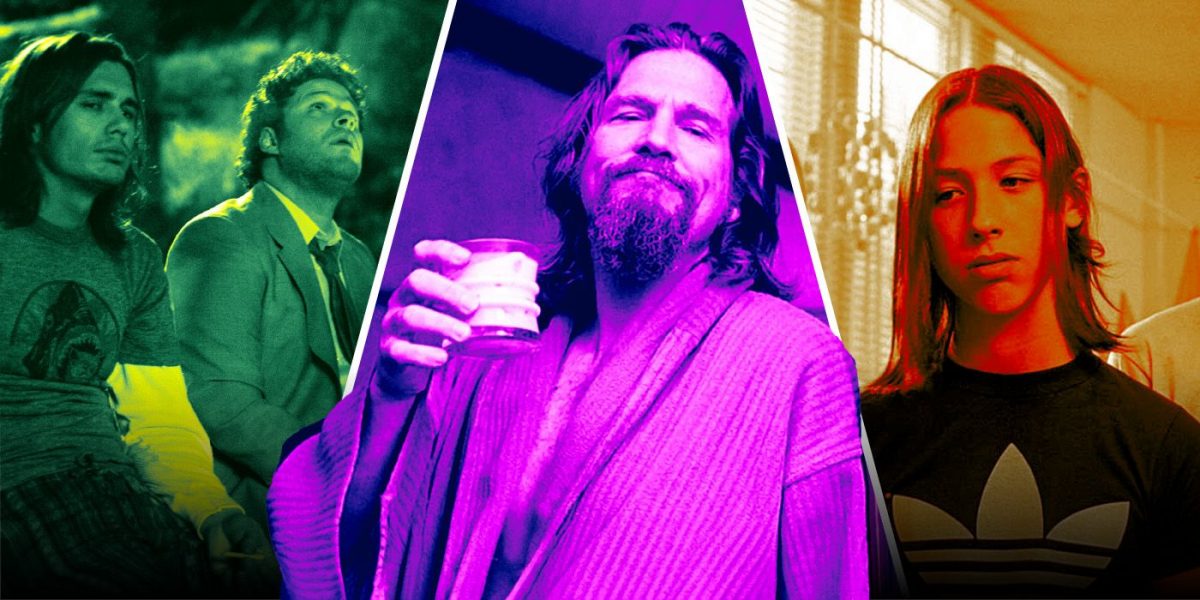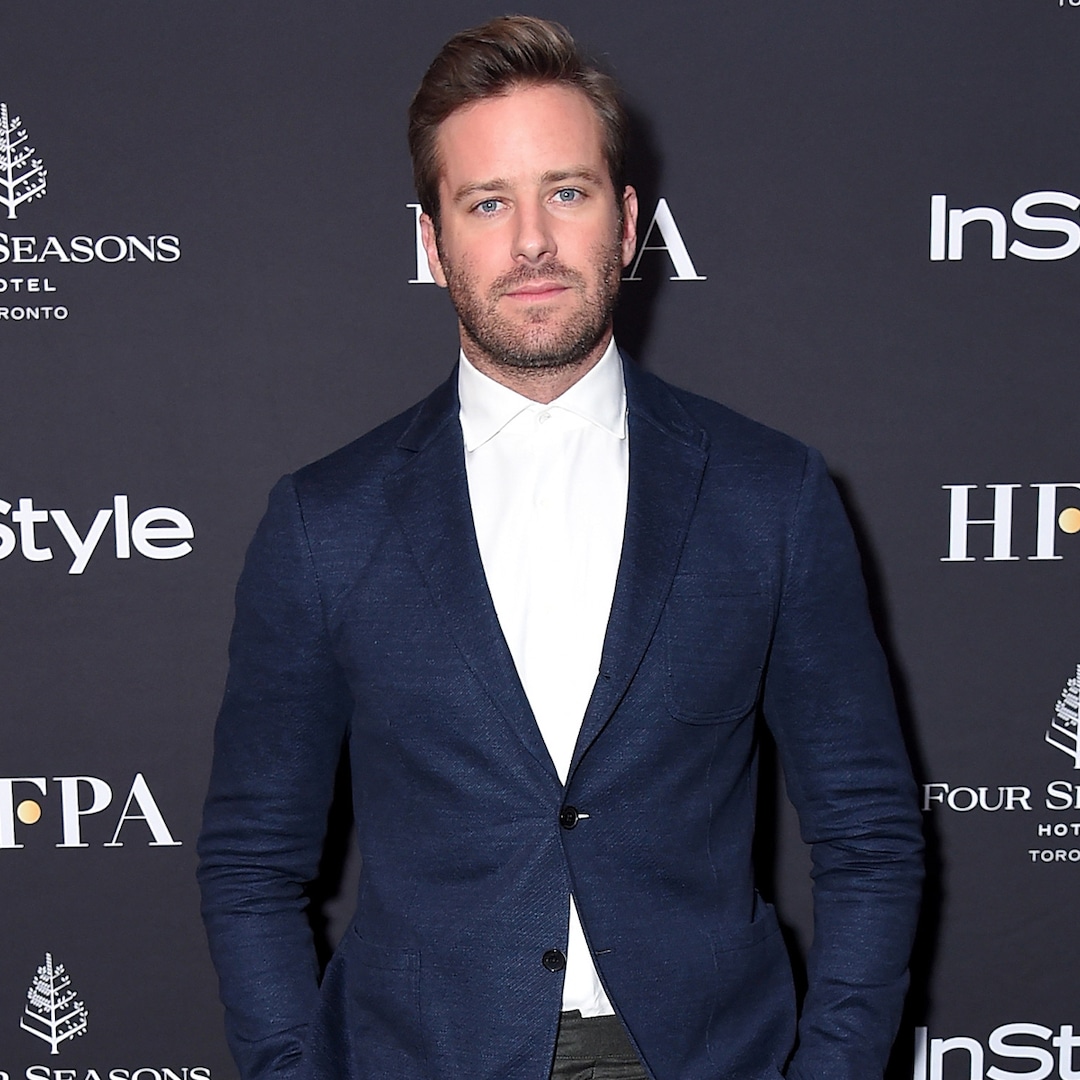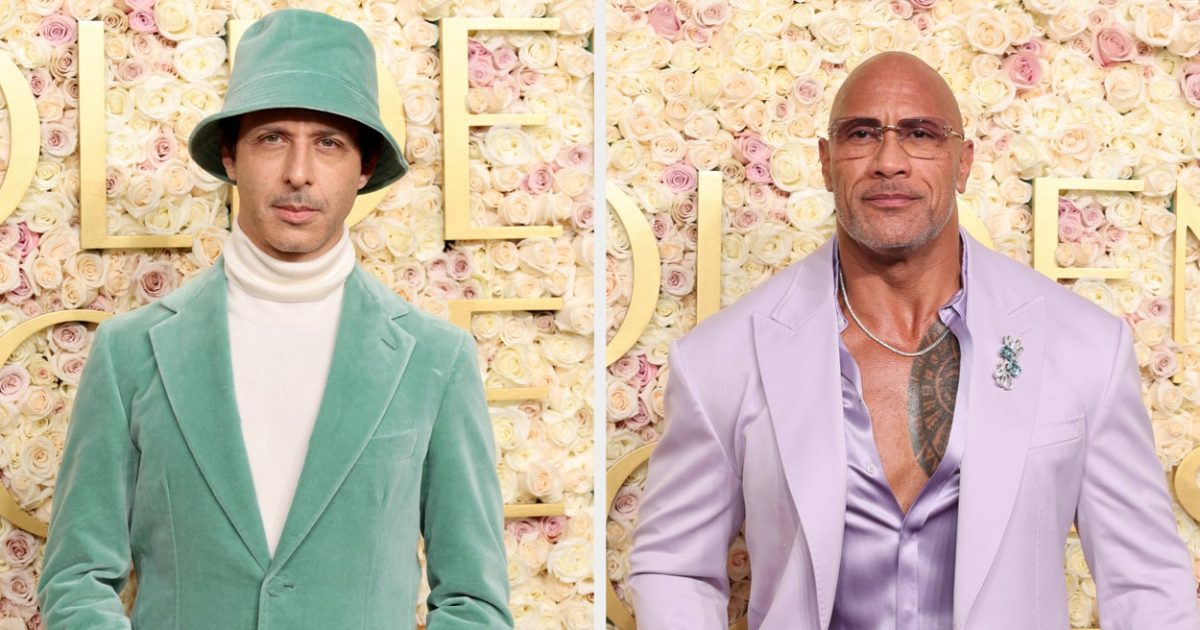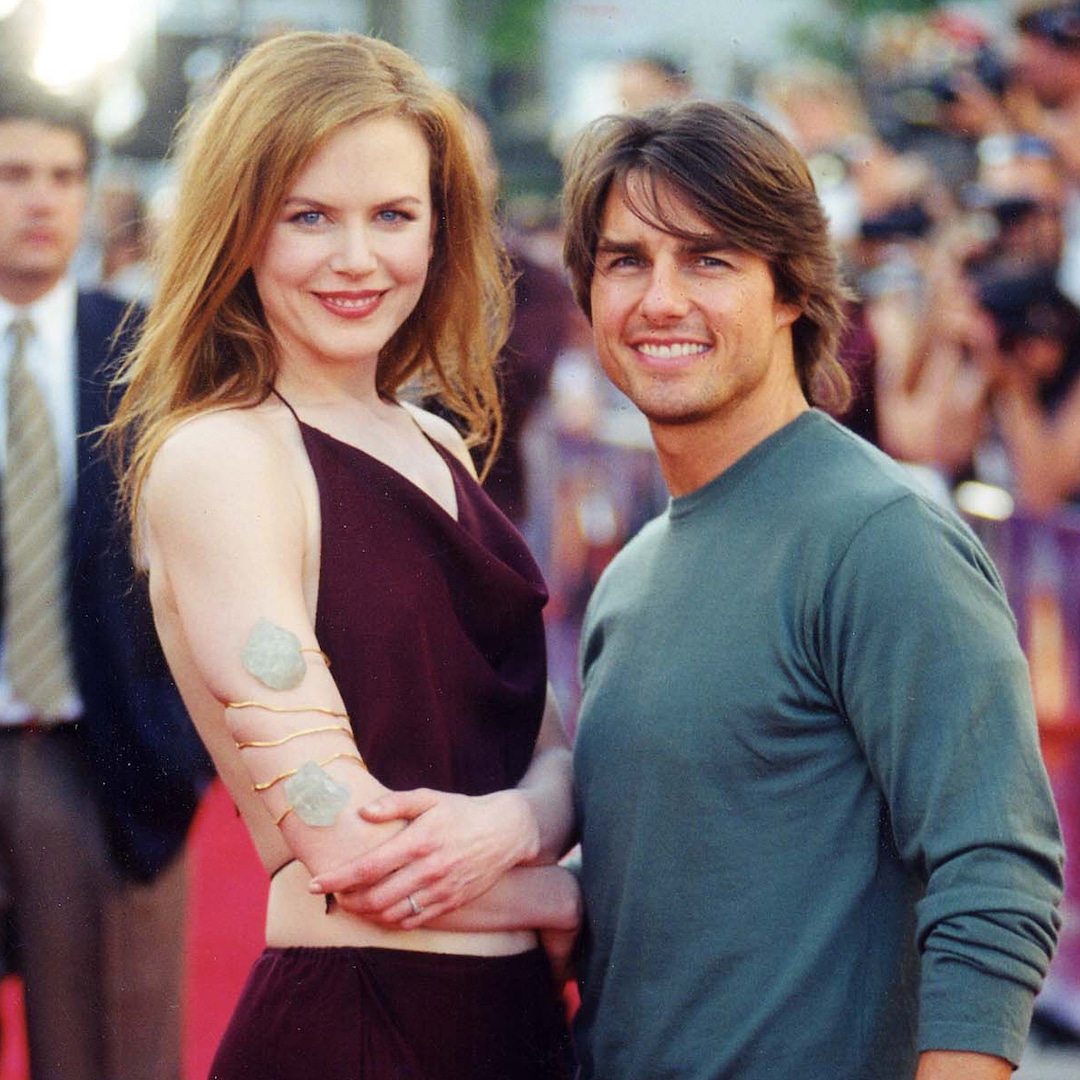
The Rise and Fall of Stoner Comedies
Jan 3, 2024
Summary
Stoner movies are characterized by their simplicity and lack of complexity, prioritizing dumb sight gags and in-jokes over deep thoughts or emotions. The genre of stoner comedies originated in the 1960s, with films like “Easy Rider” reframing drug use as a symbol of rebellion and freedom. While stoner comedies had a resurgence in the 1990s, the genre has since declined, with the success of these movies being dependent on broader social attitudes towards drugs.
The prototypical stoner movie is so basic and mundane in its elements, that it only needs to check a few boxes to be complete: giggling, munchies, confusion … you know the drill. By design, they can’t be too nuanced or complex. Instead, the dumbest sight gags and in-jokes are preferable. These types of films are not meant to provoke deep thoughts or emotions. It’s this simplicity that makes stoner comedies what they are. Make no mistake, this genre is generally not high-concept (no pun intended).
Pot panic ruled for most of the early days of motion pictures, always threatening users with the risk of death. Never mind Dorthy nodding off in that poppy field, that was the witch’s fault. If you think parents are tense now, they were no different in the thirties, as fear of “unchaperoned parties” sparked overwhelming fear. Reefer Madness, a hare-brained pseudo-docudrama about the perils of grass, was among the first high-profile depictions of recreational drug use in the movies, acquiring its own ironic cult status among connoisseurs of stoner humor. Dragnet made marijuana cool, because, well, if a cop in a suit in 1967 hates it, then it must be the bee’s knees. When Joe Friday ensured death for taking a toke, a generation rolled their eyes.
The swift ascent of the category of films in the seventies inevitably decayed and met with a largely apathetic response today. While movies featuring drug use and endearing junkies are making more money than ever, their influence and cinematic cachet is dwindling. Are drug movies even relevant in an era where dispensaries are popping up on every block? More importantly, though, are studios even willing to bother with the genre?
The Origin of Stoner Comedies
The modern dope-smoker trend kicked off in a complete accident. From initial villainization, popular culture would shift 180 degrees, as Baby Boomers began to openly resent and distrust their elders. By 1969, a new breed of filmmakers reframed the debate, making unwashed biker drug dealers not only tragic anti-heroes, but the last, true and free Americans left. Move over Joe Friday, you’re not the only one who can clamber up a soapbox.
Only fittingly, Dennis Hopper and Peter Fonda sleepwalked their way through the filming of Easy Rider, not knowing the full extent of what they had done until it was shown in theaters. In some cases, the actors were improvising on the spot, splicing in hand-held shots with professional-quality scenes to create a truly unique look that would come to encapsulate the feeling of the freewheeling hippie movement as the decade spiraled wildly out of control. Pot became many individuals’ sole identity and purpose, as they lost faith in everything else.
The consequences of the sixties are still felt to this day. Through association, certain character types or caricatures were inexplicably tied to the stereotypical stoner, whether that be the hippie, the surfer, the burnout, the dropout, or any carefree teen boy lacking ambition. This makes trying to identify which movies qualify as stoner cinema more challenging than at first glance. Was Jeff Spicoli a stoner? No doubt. Were Wayne and Garth from Wayne’s World? That remains unknown. Were Bill and Ted stoners? Nope, at least according to Keanu Reeves. See the problem? For the sake of simplicity, we’ll stick to the more memorable movies.
Stoner Comedies’ Cash-Machine Era
Speaking of green, money is also important in the story of the stoner comedy. Cheech and Chong, a West Coast comedy duo who had released a slew of tongue-in-cheek albums, contributed the most important pro-drug film in 1978, normalizing a trend and subculture that had been bubbling up in plain site for the better part of the decade. The quote “I think we’re parked,” could be placed in literally any stoner film and get exactly the same laugh. You can laugh at or with them because they don’t take themselves seriously.
From their film Up in Smoke, you can trace the lineage of countless offspring, most notably Fast Times at Ridgemont High, and with it, a growing backlash to the drug culture in the eighties. Nancy Reagan’s “Just Say No” ad campaign enlisted celebrities to denounce drugs, which led to a downturn in the production of movies glorifying drug usage, especially among kids. The first wave of feel-good drug comedies was remarkably short-lived.
What we saw replace the light-hearted films in the late eighties and nineties instead was grimier, more downbeat films showing addicts stealing and selling their bodies to get a fix, using harder drugs, just as Joe Friday warned. Gus Van Sant’s Drugstore Cowboy and Scott Kalvert’s equally harrowing The Basketball Diaries were such perfect antidotes to Fast Times at Ridgemont High and Cheech and Chong, that you might almost mistake them for part of a campaign by the D.A.R.E. public relations team.
Related: The Funniest Stoner Characters in Movie History
However, the stoner comedy concept was revived in the mid-nineties due to relaxed attitudes to getting high. Interestingly, one of the most beloved films of the Coen Brothers’s lengthy career turned out to be a mingling of the pothead category mixed with noir elements and surrealism, creating the truly one-of-a-kind The Big Lebowski, modeled heavily on Raymond Chandler’s The Big Sleep. Neither a huge hit with critics nor fans at the time, its expanding cult status since release has cemented its place in the pantheon of drug movies.
A few other unique variations would follow suit. Half-Baked inadvertently satirized the bail system and the American prison system in general, though it was essentially a romance and buddy comedy in disguise. This was likely the apex of stoner comedy. But the genre was already wearing thin by the time that rappers Method Man and Redman debuted their own pot comedy, How High, in 2001.
The Top Grossing Stoner Comedy
By the release of Pineapple Express, the edginess and originality of a pot-themed film had evaporated like last week’s bong water, leaving only a crusty, brownish residue of its glory days. A look at critics’ scores presents an obvious conundrum. Fans might adore Terry Gilliam’s Fear and Loathing in Las Vegas, but critics hated it. Up in Smoke, arguably the most important stoner film, and the de facto template for the genre, received a dismal 47% from critics on Rotten Tomatoes — likely a result of its meandering plot and bizarre sense of humor.
From the maligned reception to Dude, Where’s My Car? and Harold & Kumar Go to White Castle, one could even say that the secret to a memorable counter-cultural film is annoying all the “experts” with supposed good taste, bypassing them through word of mouth and youth appeal. Considering that both films far exceeded their budget, they clearly spoke to their intended audience, even if they had nothing new to say.
It’s hard to pin down what makes a great stoner comedy, but it has nothing to do with prestigious actors, clever twists, or good pacing. Usually the opposite. An iconic pothead (usually paired with an equally befuddled sidekick) must be likable. The plot? Don’t worry about that; the writers never have. The best criteria for what provides these films with longevity is the ability to generate a couple of quotable lines, and, perhaps unfortunately, producing endless sequels cashing in on the underground status before all the main actors abandon the series.
Related: In Defense of the Stoner Movie
The derivative films made after the classics are more stems than buds. People still identify as dope smokers, but the scene’s changed. The feeling of rebellion and exploration around drug use has been replaced by consumerism and gluttony. The mystique is gone, yet Hollywood’s never fully given up on the pot premise, more out of desperation than anything else. Almost thirty years after the first film, we can expect a reboot of Dave Chappelle’s Half Baked in a belated sequel, obviously striking while the iron is hot. Friday and How High received two obscure sequels in the 2010s. Ted? Yup, it also got a sequel, but it was an anomaly more than anything.
Whereas the first Ted was the most successful stoner comedy of all time, earning half a billion worldwide, the sequel shows that these movies don’t have legs as a franchise. Thus showing that they are worthless in the eyes of studios who are averse to comedies by default, as well as afraid of anything that doesn’t translate to other cultures, or are non-franchisable films and IP. The great drug-themed comedies are almost exclusively one-off films, often struggling to break even.
The success of stoner comedies is hugely dependent on broader social attitudes toward them and the drug itself. Too acceptable, and there’s nothing subversive or rebellious about the genre. Too feared, and it’s impossible for them to get made. It’s in the sweet spot of the late ’80s and ’90s that stoner comedies reached the peak of their quality, and, unfortunately, it’s been all downhill from there.
Publisher: Source link
The Internet Has Officially Lost It Over Andrew Garfield's Slutty Glasses
That man knew exactly what he was doing with those glasses.View Entire Post › Disclaimer: This story is auto-aggregated by a computer program and has not been created or edited by filmibee.Publisher: Source link
Jan 9, 2025
Armie Hammer Lands First Movie Role Since Cannibalism Allegations
Armie Hammer Cameos As “Kannibal Ken” in Music Video 4 Years After Cannibalism ClaimsArmie Hammer is heading back to the big screen. More than one year after the Los Angeles Police Department ended their lengthy investigation into the Call Me…
Jan 9, 2025
20 Best Dressed Men At The 2025 Golden Globes
20 Best Dressed Men At The 2025 Golden Globes The televised portion of awards season is here! On Sunday night, the Golden Globes were held in Los Angeles, kicking off what looks to be a lively next several months of…
Jan 8, 2025
Tom Cruise & Nicole Kidman’s Son Connor Shares 2025 Update in New Pic
Tom Cruise and Nicole Kidman's Son Connor Cruise Golfs With Crocodile in New PostTom Cruise and Nicole Kidman's son is teeing up for a great year. Connor Cruise recently kicked off 2025 at the links, swinging by Lost City Golf…
Jan 8, 2025











